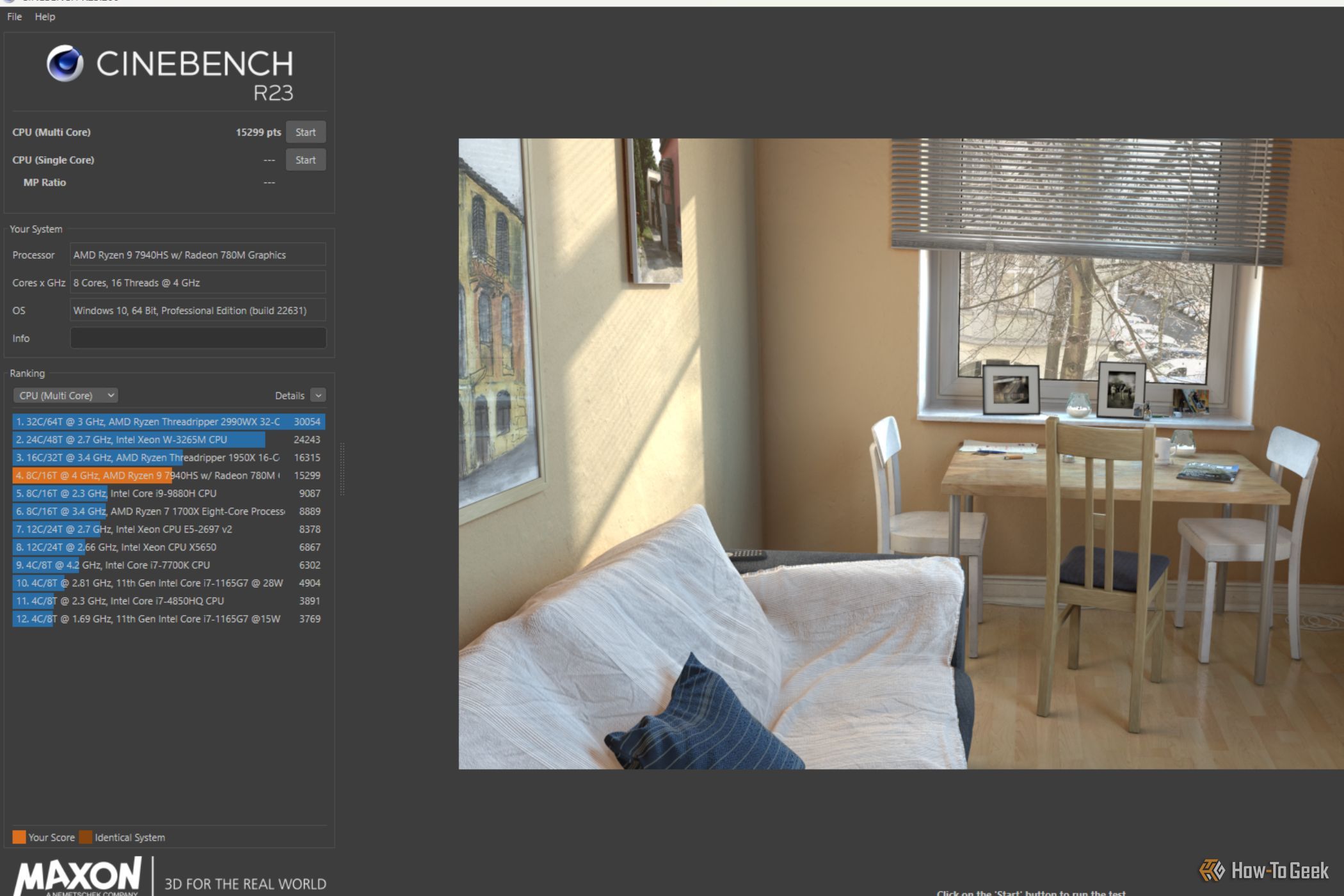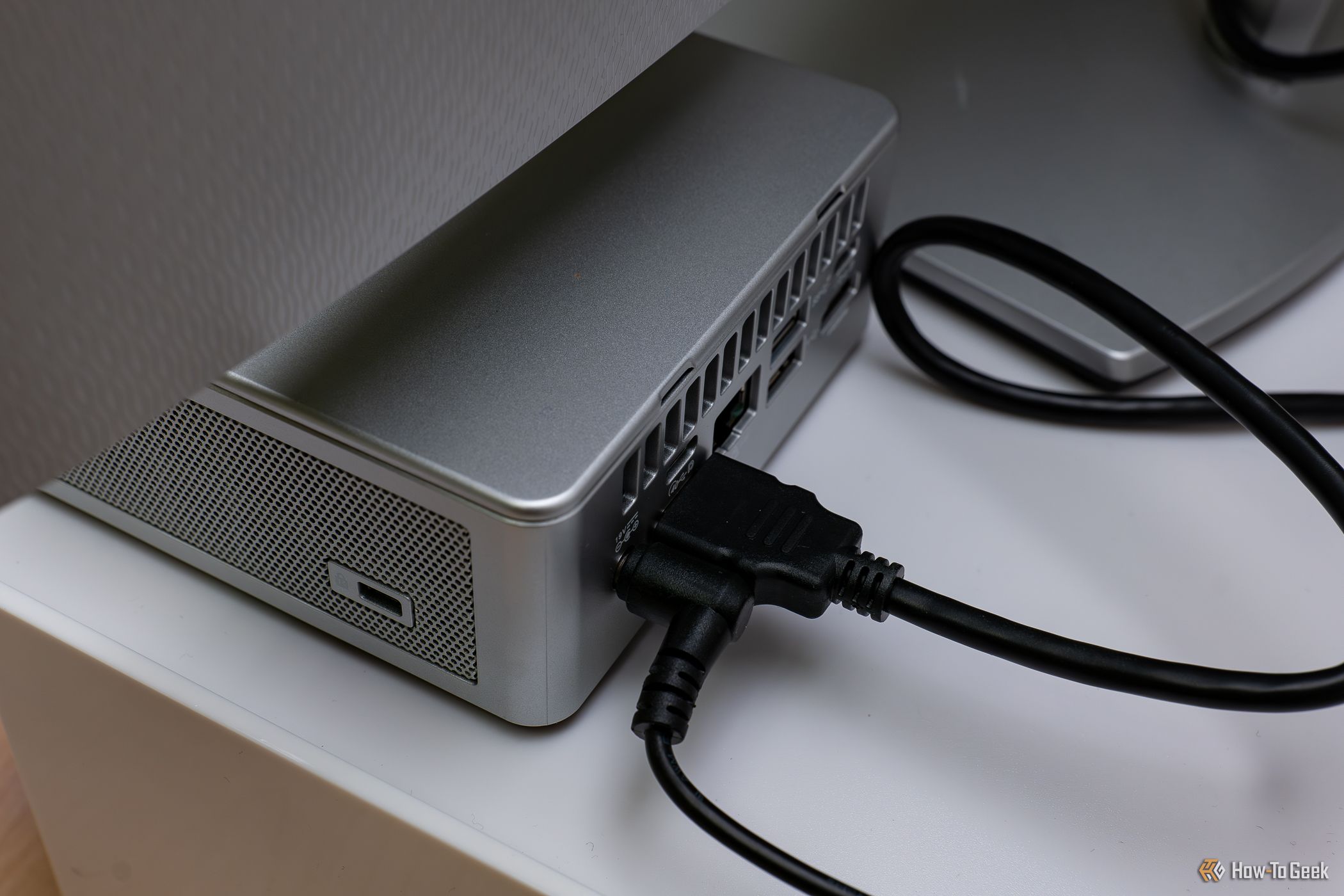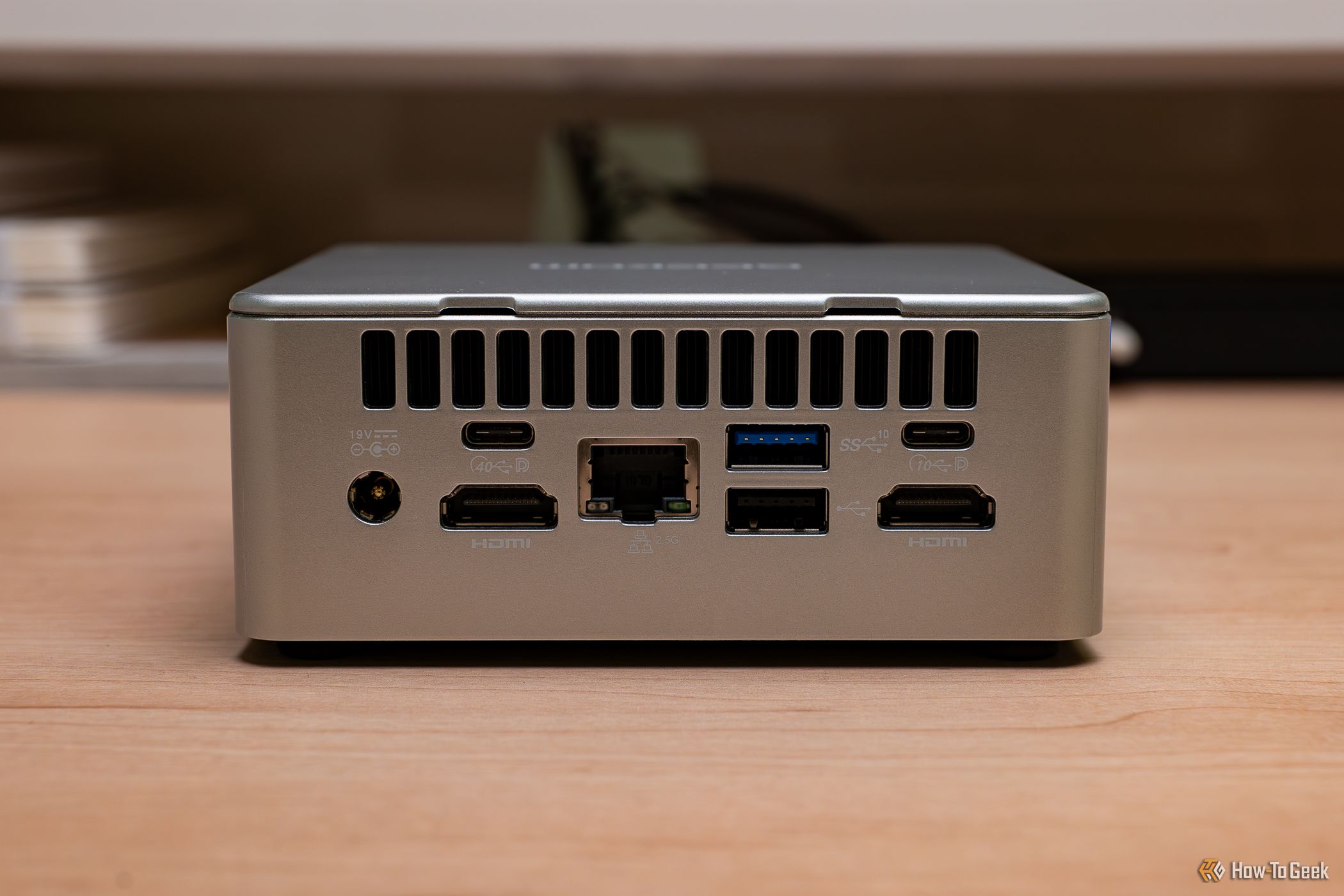Key Takeaways
- The AE7 is a powerful budget-friendly mini PC with good performance for casual gaming.
- Upgrading is user-friendly via a removable panel.
- The smaller size raises concerns about overheating and loud fan noise.
The GEEKOM AE7 mini PC tackles PC gaming with vigor that is unexpected for something so small, but it’s not without issues that have been in other GEEKOM budget gaming PCs I’ve reviewed. Akin to a gaming laptop, the unit runs hot despite a jarringly loud fan.
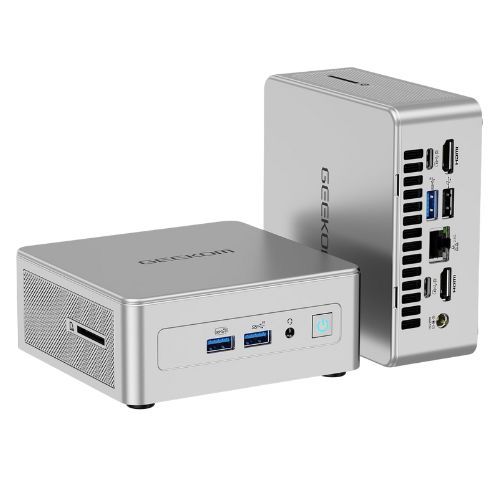
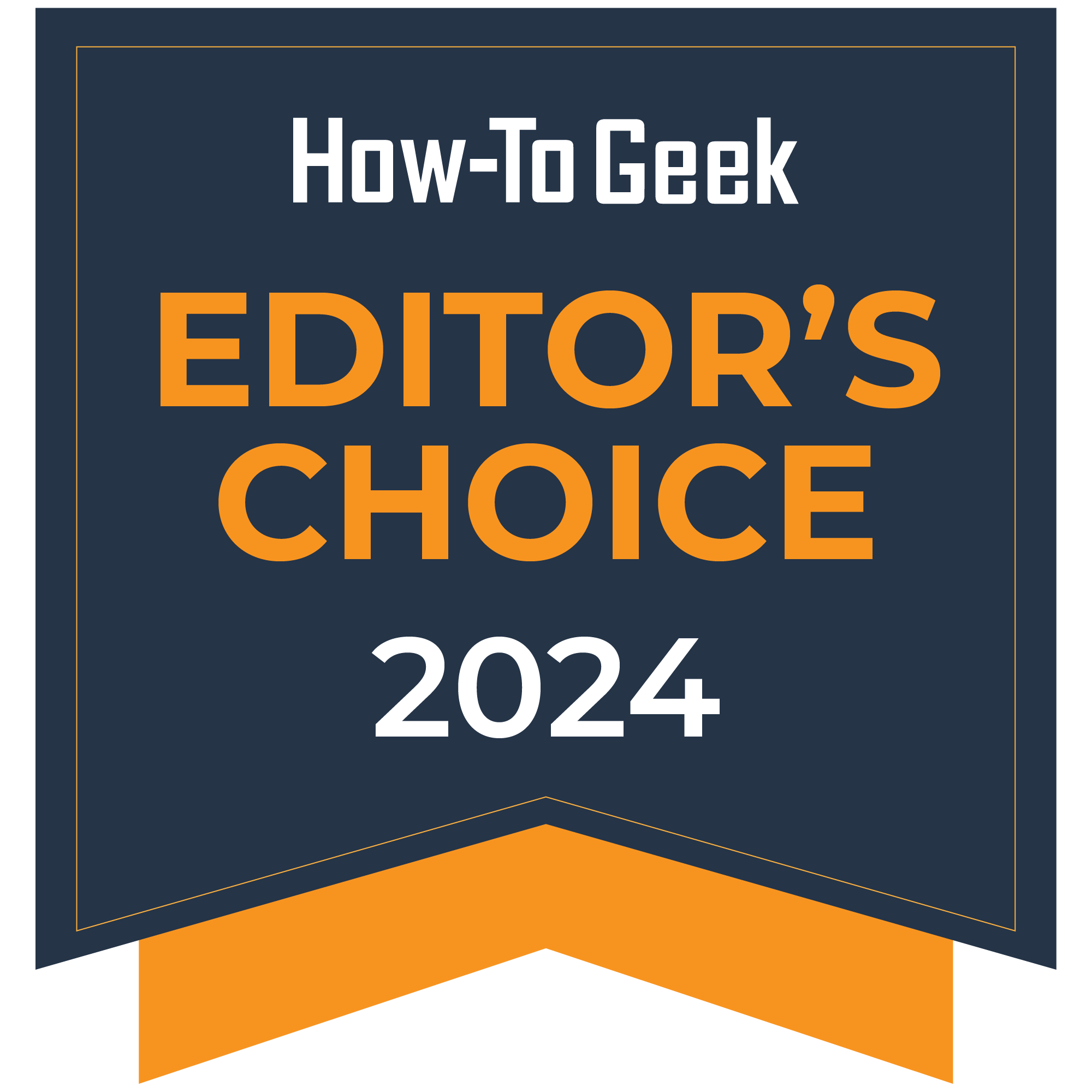
GEEKOM AE7 Mini PC
GEEKOM’s AE7 mini PC delivers a powerful, budget-friendly punch to immerse you into the latest AAA games, but its smaller size may bring up issues common with gaming laptops.
- Upgrading is very user-friendly
- Fast and stable Wi-Fi 6E connection
- Can mount to back of VESA monitor
- Great performance for a budget gaming PC
- Fan runs very loud
- Only two USB-C ports
- Requires clunky power brick
- Potential to overheat with demanding games
Price and Availability
The GEEKOM AE7 mini PC comes standard with an M.2 2280 1TB SSD, two 16GB DDR5 5600 MT/s RAM, an AMD Ryzen 9 7940HS processor, and AMD Radeon 780M GPU. You can secure this build on GEEKOM’s official website and Walmart for $699. You can also find it on Amazon for $704.99.
Performance and Benchmark
Cinebench R23 Test Results
GEEKOM’s AE7 looks like an office desktop, and its smaller size does not lend much confidence towards a powerhouse being within the case. However, its marketing is very much geared toward gamers and creators, so that’s how I tested it. Sure, it runs wonderfully when you’re not taxing its specs, but GEEKOM seems confident in its ability to deliver a budget-friendly mini-gaming PC. It makes sense, then, that the manufacturer went with AMD’s Ryzen and Radeon at the helm. Despite its size, the AE7 delivers a more than serviceable performance that will allow you to enjoy some of the more demanding games on the market.
Using 3DMark and Cinebench benchmarking software, I received a clear picture of what the AMD-powered mini PC could do. Overall, the AE7 performed well in 3DMark’s benchmarking tests, reaching above average with 8,562 points for the Fire Strike graphics score. While that may not get you perfect visuals, as 1440p resolution will drop the FPS (frames per second) drastically on taxing games like Red Dead Redemption 2, you can still roam the stunning prairies of the Old West at more than 35FPS in 1080p with the graphics settings close to maximum.
In the Cinebench R23 multicore CPU test, the AMD Ryzen 9 7940HS scored fairly close to AMD’s Threadripper 1950X, with a score of 15,299 against 16,315. For a frame of reference, I also tested my current desktop, which runs on an Intel Core i7-9700. That scored more than half of the AE7 at 6,642. Knowing that my older 2020 HP desktop can run newer games on at least medium settings, I wasn’t too surprised that AE7 was powering through the same titles.
One of my favorite things about all the GEEKOM mini PCs I’ve had time with is how easy they are to upgrade. The AE7 features a 1TB SSD, and two 16GB DDR5 RAM sticks out of the box. However, both can easily be upgraded to 2TB of storage and 64GB of RAM by unscrewing the AE7’s base plate and carefully inserting the new drives or RAM. Granted, you still need base-level knowledge of what both look like to know where they should be installed, but it’s a very easy process that feels made for the casual consumer.
Cooling Concerns
Before reviewing the AE7, I tested GEEKOM’s IT11 and AS 6 mini PCs with mostly favorable results. Both were capable enough to stand in as budget gaming PCs and play some of the more demanding games of their time. The AE7 offers a little more power than its predecessors, albeit with an added concern—the risk of overheating. If I can play immersive games on a mini PC, I want to do so without the fear of components getting burned out.
On 3DMark’s benchmark tests of the AE7’s Ryzen 9 7940HS and IT11’s Intel Core i7-13700H processors, the 7940HS ran noticeably hotter. In the Fire Strike test, the CPU spiked at over 90 degrees Celsius. That’s on the higher end for a normal-sized desktop PC and a little concerning for something so compact. Seconds after the benchmark test started, the AE7’s fan kicked in, which is a testament to how quickly the mini PC needs to try and cool itself down.
The fan is also my least favorite thing about the AE7. Like a gaming laptop, the fan works overtime to keep the PC from burning out. Unfortunately, given the temperatures, the fan is constantly running, and it’s not exactly quiet. It may seem like a ridiculous complaint, but the low hum is noticeable and undercuts my immersion. This could be drowned out with a gaming headset, but with a spouse and two needy cats, I don’t live in a household where I’m comfortable being cut off from all external noise.
Wireless and Connectivity
It’s easy to equate a smaller package to a lower-quality build, but GEEKOM’s AE7 is anything but low quality. It consistently surpassed my current hardware, which, again, is old but still runs very well. The one area I didn’t expect the AE7 to excel as much as it did was with its Wi-Fi 6E connectivity. I’m constantly having issues with my desktop pulling 300Mbps on a 1Gbps fiber optic line. While the AE7 still didn’t achieve the max connection speed, it more than doubled my desktop at 640Mbps download. Even the upload speed, 397Mbps, surpassed the 250Mbps of the larger HP desktop.
The AE7 also boasts Bluetooth 5.2, which connects seamlessly to my headset, wireless keyboard, and wireless speakers. Where I feel the mini PC takes a step back from comparable tech is with its available ports. When it comes to the available inputs, my biggest question is why we are still relying so heavily on USB-A, let alone USB 2.0 Type-A connections.
Understandably, the PC shouldn’t just offer USB-C ports, though having just two USB Type-C inputs is a mistake. There is still some time before USB-C becomes universal in the U.S., as we’re unfortunately lagging behind the European Union on that requirement. However, I’ve come across many wired keyboards, mobile devices, and other peripherals that have made the change to USB-C to USB-C cords. GEEKOM does try to make up for this with three USB 3.2 Type-A ports, but you’ll need an adapter if you have too many devices that need to be plugged in via USB-C.
Should You Buy the GEEKOM AE7 Mini PC?
I really like the power output of GEEKOM’s AE7 mini PC. I don’t like the noise level or heat production, and if we’re talking about this being a budget gaming PC, both could become problematic as you boot into taxing titles and try to run them even on high settings. Thanks to AMD, the game will run nice and smooth at an acceptable FPS, but the AE7 will certainly start screaming over it.
I do like the specs out of the box, and you can mitigate the fan with a noise-canceling headset. Many would say you should wear a headset when playing a game for full immersion anyway. If you can overlook the minimal USB-C ports and don’t mind tapering the resolution and visuals of high-end games to just below maximum settings, then you should take advantage of the AE7’s compact size and simplicity.


GEEKOM AE7 Mini PC
GEEKOM’s AE7 mini PC delivers a powerful, budget-friendly punch to immerse you into the latest AAA games, but its smaller size may bring up issues common with gaming laptops.


